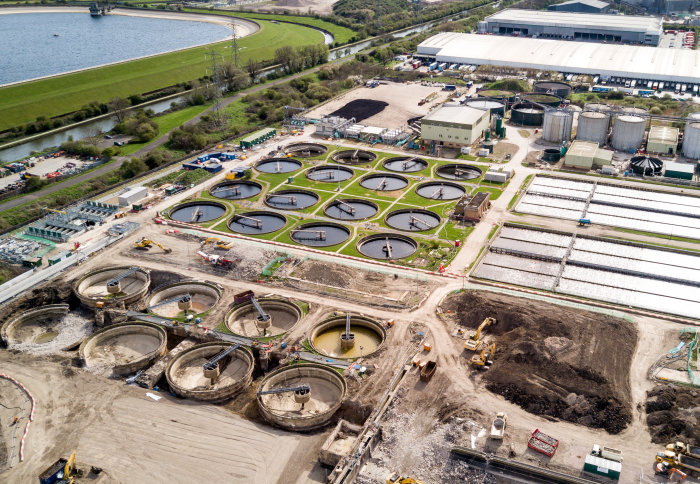London’s ailing water systems to get a helping hand from scientists

Mogden Sewage Treatment Works in Isleworth
Imperial experts will lead a landmark analysis to help tackle drought, flooding and pollution across London.
Ageing water infrastructure like sewage works, combined with climate change and a booming population, all contribute to London’s vulnerability to water shortages, floods and environmental impacts.
To address the issue, Dr Adrian Butler from Imperial College London’s Department of Civil and Environmental Engineering will lead a team of
By harnessing the power of local communities and scientific analysis, we will recommend how best to manage London’s water systems. Dr Adrian Butler Department of Civil and Environmental Engineering
experts to analyse the current system and recommend changes.
They will work with residents and institutions in four key inner London areas – Thamesmead, West London, Southwark, and Enfield – to create a community-based approach to water management by including local residents in decision-making. The researchers hope their approach will also help foster healthier, happier communities in the inner city.
Dr Butler said: “London’s population and housing needs are growing, but our water infrastructure and governance is ill-equipped to cope with this expansion. By harnessing the power of local communities and scientific analysis, we will recommend how best to manage London’s water systems.”
A liveable London
The programme, known as Community Water Management for a Liveable London (CAMELLIA), will transform the way different factions of water management, like those dealing with droughts and flooding, communicate with one another.

By the end of the project, Dr Butler’s team expects to have helped make the London Development Plan for over 500,000 new homes possible with minimal impact on water systems.
He said: “We must nurture better communication between the different parts of London’s water systems. By the end of the process we hope to make them cheaper to run, perform better, and be more connected with local communities and with one another. We hope it'll also help with increasing demands for housing.”
System Analysis Lead Dr Ana Mijic, also from Imperial’s Department of Civil and Environmental Engineering, said: “The project will bring environmental, engineering, urban planning and socioeconomic experts together with governmental and planning authorities, industry, developers and citizens to enable required housing growth in London whilst sustainably managing water and environment in the city.”
The team also includes Dr Athanasios Paschalis, who will be leading the work on urban water quality, and Dr Alexandra Collins from the Centre for Environmental Policy, who will be coordinating the development of urban ecosystem services.
Partnerships for people
Project partners include Peabody, one of London’s oldest and largest housing providers, who are responsible for Thamesmead - one of the largest single development sites in London.
Other partners include Thames Water, London Underground, Greater London Authority, and Affinity Water, plus several other local communities and housing estate residents, including river trusts like Thames21.
The Natural Environment Research Council (NERC) is funding the project as part of its Regional Impact from Science of the Environment (RISE) initiative, which studies water quality and air pollution in the UK.
The Imperial researchers will also work in collaboration with researchers at UCL, the University of Oxford, and the British Geological Survey.
Main image: Shutterstock/pxl.store
Article image: Shutterstock/michaelheim
Article supporters
Article text (excluding photos or graphics) © Imperial College London.
Photos and graphics subject to third party copyright used with permission or © Imperial College London.
Reporter
Caroline Brogan
Communications Division